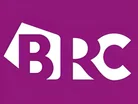Will BRC's NI Warning Impact Your Shopping Costs?

The British Retail Consortium's (BRC) 2025 survey of retail Chief Financial Officers reveals a sector bracing for significant challenges this year, with the majority planning to increase prices in response to rising employer National Insurance Contributions (NICs).
Pessimistic Outlook Dominates Retail Finance Leaders
A comprehensive survey of CFOs from 52 leading retailers has uncovered widespread pessimism about trading conditions for the year.
Sentiment registered at a concerning -57, with 70% of respondents expressing they were either "pessimistic" or "very pessimistic" about trading prospects in 2025.
Just 13% of retail finance leaders reported feeling "optimistic" or "very optimistic," while 17% remained neutral.
This downbeat outlook comes as retailers face a perfect storm of challenges, including weak consumer confidence, rising operational costs, and increased regulatory burdens.
"With the Budget adding over £7bn (US$9.06bn) to their bills in 2025, retailers are now facing difficult decisions about future investment, employment and pricing," says Helen Dickinson, Chief Executive at the BRC.
“As the largest private sector employer, with many part-time and seasonal workers, the changes to the NI threshold have a disproportionate effect on both retailers and their supply chains, who together employ 5.7 million people across the country.”
National Insurance Changes Drive Strategic Responses
When specifically asked how they would respond to increases in employers' NICs scheduled for April 2025, 67% of retail CFOs stated they would raise prices. Additionally, around half said they would reduce 'number of hours/overtime' (56%), 'head office headcount' (52%), and 'stores headcount' (46%).
Nearly one-third of respondents (31%) indicated that increased costs would accelerate automation initiatives, suggesting that the tax changes may inadvertently speed up technological displacement in the retail workforce.
The survey results align with earlier concerns expressed by retail leadership. Just weeks before this survey, 81 retail CEOs wrote to the Chancellor warning about the economic consequences of the Budget.
Their letter highlighted that the retail industry's costs could increase by over £7bn (US$9.06bn) in 2025 due to changes in employers' NICs (£2.33bn (US$3.01bn)), National Living Wage increases (£2.73bn (US$3.53bn)) and the reformed packaging levy (£2bn (US$2.59bn)).
Inflation Forecasts Paint Concerning Picture
The CFO survey also provided inflation forecasts that suggest shop price inflation, currently at 0.5%, will rise to an average of 2.2% in the second half of 2025. Food products are expected to see the most pronounced increases, with food inflation potentially reaching an average of 4.2% in the latter half of the year.
These projections come at a time when consumers are already feeling financial pressure, raising concerns about further dampening of consumer demand – one of the top three concerns cited by over 60% of retail CFOs, alongside inflation for goods and services and the increasing tax and regulatory burden.
"The majority of retailers have little choice but to raise prices in response to these increased costs, and food inflation is expected to rise steadily over the year. Local communities may find themselves with sparser high streets and fewer retail jobs available"
The Budget's impact extends beyond immediate pricing strategies. Among surveyed CFOs, 46% indicated they would "reduce capital expenditure" while 25% said they would "delay new store openings." Furthermore, 44% of respondents anticipated reduced profits, which will further constrain capacity for investment and growth.
Business Rates Remain a Key Concern
Beyond the immediate challenges posed by National Insurance increases, the retail sector continues to identify business rates as a significant obstacle to growth and investment.
"Retailers have worked hard to shield their customers from higher costs, but with slow market growth and margins already stretched thin, it is inevitable that consumers will bear some of the burden," Helen explains.
"The majority of retailers have little choice but to raise prices in response to these increased costs, and food inflation is expected to rise steadily over the year. Local communities may find themselves with sparser high streets and fewer retail jobs available.
“Government can still take steps to shore up retail investment and confidence. Business rates remain the biggest roadblock to new shops and jobs, with retailers paying over a fifth of the total rates bill.
“The Government must confirm the planned reforms will make a meaningful difference to retailers' bills and that no shop will end up paying more."
Make sure you check out the latest industry news and insights at InsurTech and be part of the conversation at our global conference series, FinTech LIVE.
Discover all our upcoming events and secure your tickets today.
InsurTech is a BizClik brand




